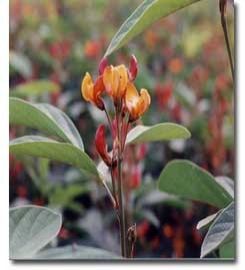Scientists Crack Code of Pigeonpea, Drought-Resistant Crop

Pigeonpea - a minor agricultural crop more common in rural backyards than plowed fields, reached a milestone Sunday when Indian and Chinese researchers announced the decoding of the plant's genome.
Pigeonpea grows in semi-arid regions, but suffers from relatively low yields, experts say, which impedes its development as a potential nutrition source in developing nations.
Researchers said they hoped the pigeonpea genomic map, the first for any non-industrial crop, would lead to improved breeding programs for a plant that has seen a 56 percent increase in global crop production since 1976.
Researchers from the International Crops Research Institute for the Semi-Arid Tropics (ICRISAT), headquartered in Andhra Pradesh, India, decoded the pigeonpea genome five years after the Indian Council of Agricultural Research funded the initiative.
The ICRISAT researchers published the pigeonpea genome code on Sunday in the journal Nature Biotechnology. ICRISAT Director General William Dar said mapping the pigeonpea genome is a breakthrough because the plant has unique qualities that make it a powerful tool in the fight against hunger, especially in places like the horn of Africa.
The mapping of the pigeonpea genome could not have come at a better time, Dar said in a statement. Modern crop improvement technologies for smallholder farmer crops such as pigeonpea will be crucial to speed up the development of improved varieties that can provide high yields and improved livelihoods, and at the same time meet the challenges of marginal environments and the threat of climate change and scare natural resources.
The pigeonpea project was a partnership between ICRISAT and BGI Shenzen. Scientists say having this wealth of information about the pigeonpea can help them make new varieties of the grain much faster, keeping pace with the rapidly changing climate. The researchers notably found genes that could transfer to more agriculturally significant crops such as soybeans.
At the moment, in general, it can take six to 10 years to breed a new variety. With the use of this genome sequence data, in the future, we could be breeding a new variety in just about three years, said Rajeev Varshney, the lead ICRISAT scientist on the project.
© Copyright IBTimes 2025. All rights reserved.





















